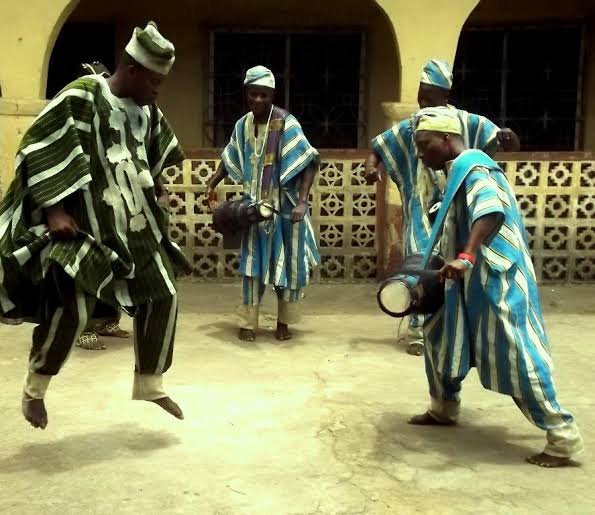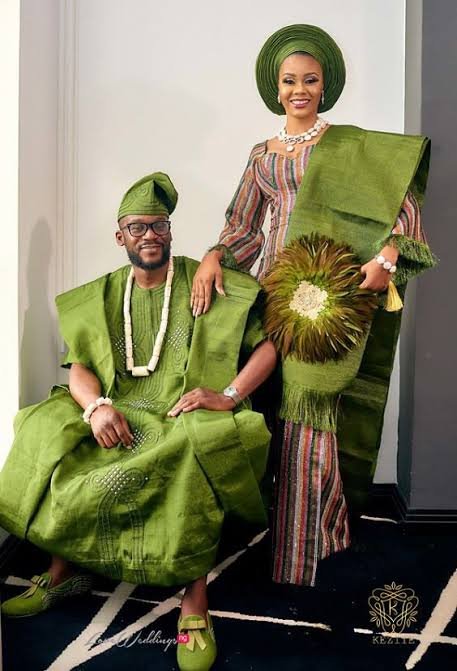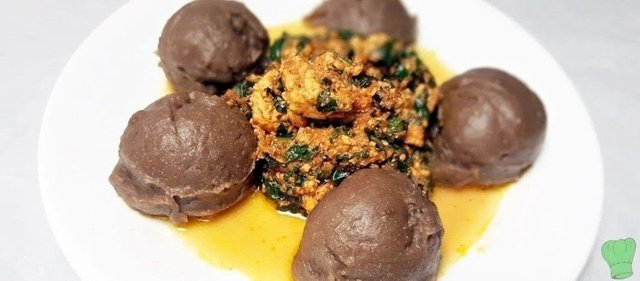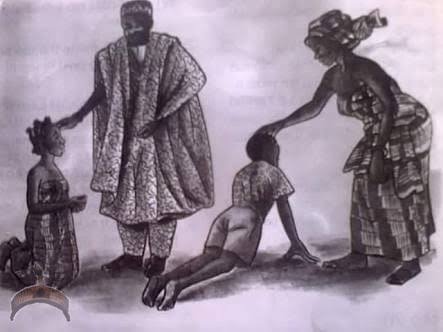The Yoruba culture in Nigeria.
****Culture as a whole****
According to various definitions of culture.
Culture refers to the cumulative gathering of experience, knowledge, beliefs, attitudes, values, meanings, religion, roles, and concepts of the universe, and material objects and possessions acquired by a group of people in the course of generations through individual and group striving.
Culture is the systems of knowledge shared by a relatively large group of individuals all with the sole purpose of achieving a common goal.
Culture consists of patterns, of and for behavior acquired and transmitted by symbols, constituting the distinctive achievement of human groups, or individuals including their embodiments in artifacts; the essential core of culture consists of traditional ideas and especially their attached values; culture systems may, on one hand, be considered as products of action, on the other hand, as conditioning influences upon further action.
*****The Yoruba Culture*******
In my country Nigeria, the Yoruba take 21% of a population of about 43.4 million, The yorubas are known to be the major inhabitants of Western Africa. Making them one of the largest and prominent ethnic groups in Africa.
Today, most contemporary Yoruba are Christians or Muslims. Many of the principles of the traditional faith of their ancestors are either knowingly or unknowingly upheld by a significant proportion of the populations of Nigeria, Benin and Togo.
Dressing
If there is one thing that Yorubas take with utmost importance it’s their dressing and attire. We believe that the type of clothes worn by a person depicts his or her personality social status and reputabiliy.
Yorubas have a lot of materials for making clothing but the major one is the Aso-oke.
The Aso oke can be used to make different styles of clothing of various colors. Aso okes are very beautiful attires, used in various formal occasions.
Men’s wear we have
• Gbariye
• Dandogo
• Agbada
• Oyala
• Sulia
And many more
For women’s wear, we have
•Tobi
•Sinmi
•Iborun
And many more
Dancing

Food
Yorubas are considered to have one of the most delicious cuisines. Each meal depicting the beauty of the tribe itself.
•Amala and Egusi
•Gbegiri Soup (made from beans)

Photo source: Aladimma Photonews
•Efo riro (Vegetable soup)

Photo Source: instagram.com @ Matsecooks
•Iyan (Pounded Yam)

photo source: allnigerianfoods.com
Greeting
The core values of the Yoruba culture is respect.
The Yoruba greetings mostly start with the Word “E” and examples are “E kale ” meaning “Good Evening” or “E Pele” meaning “Sorry” or “E ku Ise” The word “E” is symbolic with Respect in Addressing someone that is older than you. You must give it to my People oh as we appreciate Respect and Honour in our Culture so much.
It’s very paramount in our culture that the younger ones respect the older. A child or youth showing respect speaks well of his or her family.
Various genders have certain ways of greeting
The boys prostrate flat in the floor when greeting the elders and the girls kneel down.
Weddings and beliefs
Yoruba is an ethnic group which has exciting history and rich culture. If you want to learn everything you never knew about Yoruba people, you have come to the right place.
Yoruba people are talented sculptors. They are also very creative and well-known for their unique clothing patterns and designs. The textile industry is very developed in the nation. Yoruba people are known for their magnificent weddings.
The first tradition of the Yoruba wedding is that the groom has to get the consent from the bride’s parents for marrying her. After that, he is supposed to pay the bride price. The ceremony is attended by the family and friends of the bride and groom. The bride’s parents send her to her new home, and the groom’s parents welcome her there.
Like many ethnic groups, the Yoruba nation firmly believes that with death the person’s life does not end – they only transition to the different existence form. Yoruba people believe in old age and this causes them to pray for long life at the blessings. They also pray for the wealth and their children.
Festivals
The richness of the Yoruba culture in Nigeria can be seen and experienced in their festivals. Some of these festivals attract Nigerians living abroad, spectators, and tourist from all around the world. Some of these festivals have even been upgraded by the government to promote income from tourism. These festivals feature lots of entertainment which include traditional musicians with heavy rhythm and their traditional instrument, drums, and advanced percussion, various traditional Yoruba cultural dance, etc. Below are the popular Yoruba festivals that are celebrated every year in Nigeria.
•Eyo Festival
Eyo Festival is a popular Yoruba festival peculiar to Lagos state. “Eyo” is the name of the costumed dancers that come out during the festival. These costumed dancers are popularly called masquerades. The festival back in the early days started as a festival to escort the spirit of a dead Lagos king or high chief and to usher in the new king or chief. The Eyo festival is still celebrated today as a form of tourist attraction.

•Lagos Black Heritage Festival
Lagos Black Heritage Festival is a prominent festival which takes place in Lagos every year. It is an annual colourful folk festival in Lagos State. The Lagos Black Heritage Festival is a festival aimed to showcase the diversity and richness of the African heritage. The festival features a lot of events including the popular Lagos Carnival which is also known as the Caretta or Fanti Carnival of Lagos.
The annual event takes place on the Lagos Island with lots of display of troops dressed in colourful attires.
•Osun-Osogbo Festival
Osun-Osogbo Festival is an annual festival celebrated in Osogbo, Osun State in honour of Osun, a river goddess and an important deity in Yoruba land. The festival takes place at the Osun-Osogbo Sacred Grove, a sacred forest and a UNESCO World Heritage Site since 2005. The festival holds in the month of August for two weeks. The people of Osogbo see the month of August as the month of celebration, traditional cleansing of the city, and a cultural reunion with their ancestors.
Oro Festival is a festival celebrated in almost all Yoruba settlements and towns in Nigeria. The festival is an annual one with only male descendants of the paternal natives of the town where the festival is taking place.
• Oro festival
During the Oro festival, non-natives and females stay indoors because history claims that it is a taboo for a woman or anyone who is not allowed to participate in the festival to see the Oro. The way the festival is celebrated differs from town to town. The Oro festival is also performed after the demise of a Yoruba monarch.
There are a lot more festivals celebrated as well
I won’t really say my culture is the best because many people can have different opinions on their own various cultures. But the only thing that I wish could be inculcated to other cultures is the aspect of respect and greeting. It’s very important that the elders are respected. It is believed that if an elder notices respect his or her spirit will say prayers to you.
Culture is diverse. Culture is encompassing, Cture is amazing, Culture is dynamic, Culture is a way of life
Thank you so much for reading my post steemians. I am grateful you took out time to do this and special thanks to the curators:
@steemcurator01
@steemcurator02
@steemcurator03
@steemcurator04
@steemcurator05
@steemcurator06
@steemcurator07
@steemingcurators
And also special thanks to the platform, for creating this opportunity to promote our various cultural heritages. it’s really beautiful.
I’m a member of Steemalive2
This is me.

Subscribe
••••





Thanks a lot for your entry for the contest. You are welcome. Good luck!!
Thanks a lot for your
Entry for the contest. You
Are welcome. Good luck!!
- oppongk
I'm a bot. I detect haiku.
Thank you very much